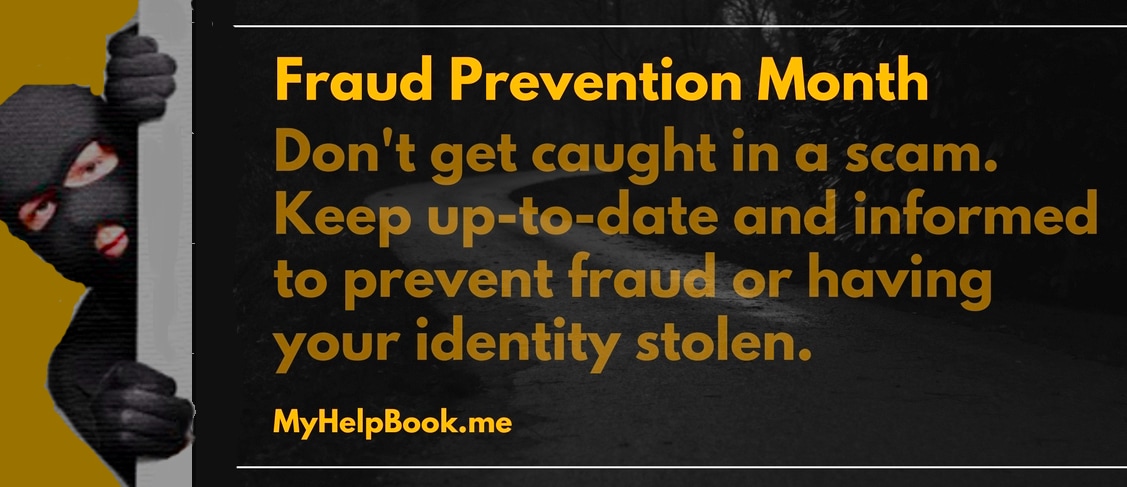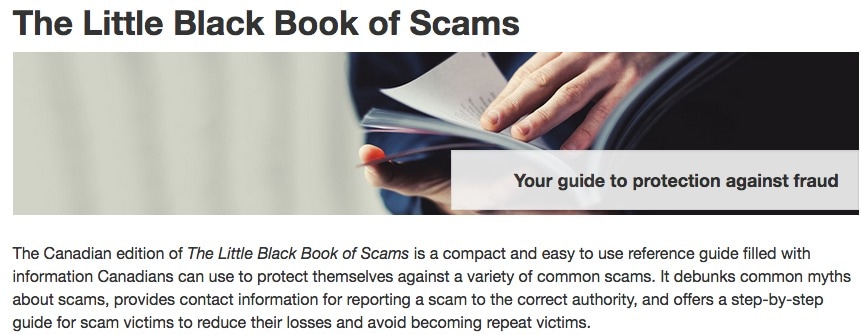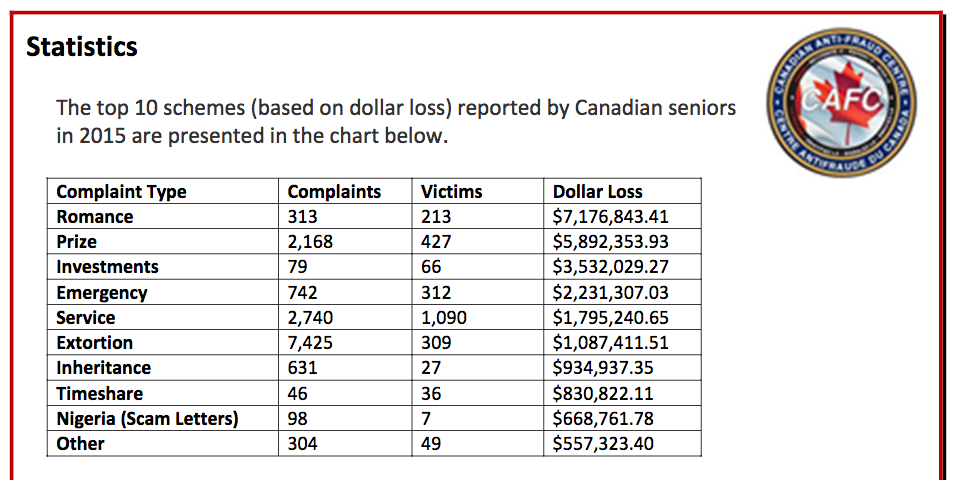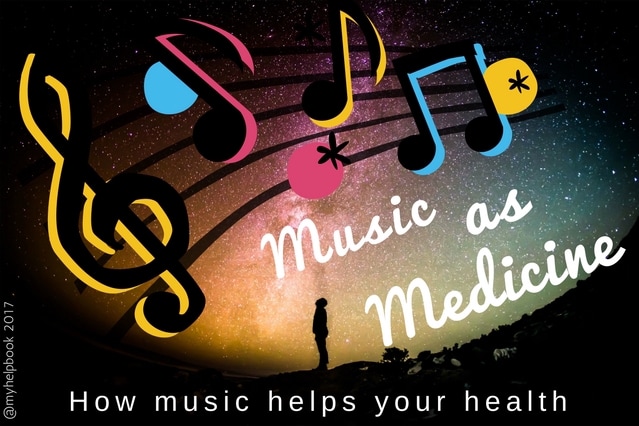|
Fraud Prevention Month is March. In Canada, a good source of up-to-date information is the Little black book of Scams from Industry Canada. Keep yourself informed to prevent becoming one of the many thousands of victims of fraud each year; be sure to share tips with vulnerable friends and family members; and if you have children, remember to protect their personal information and documents. If you have been scammed:
Report it to the Canadian Anti-Fraud Centre online or call them toll-free: 1-888-495-8501 Alerts and Tips to Avoid Fraud and Identity Theft:
Simple Fraud Prevention Tips:
Help any seniors you know avoid fraud by reading this 2015 Seniors' Toolkit (PDF). Here is a graph from the report showing the huge losses of Canadian seniors by fraud type.
0 Comments
Even though music might be regarded as something frivolous, it has long been an intrinsic part of human culture. Starting from the time we are young children, some would even say within the womb, music has many benefits for our well-being. And there's increasing research showing the many benefits of having music in our lives.
How music benefits children: Advocates of music in schools have collected research showing that music and playing musical instruments helps children's language development, memory, physical co-ordination, imagination, creativity, teamwork and self-confidence. It has also been said that playing music improves math skills, but on this point, research is inconclusive. Music helps your brain: Playing a musical instrument has many beneficial effects, not just for children but for adults too: verbal memory, spacial reasoning, faster neural responses, and literacy skills are all enhanced by learning music. It has also been shown that music is helpful for people with Parkinson's and those recovering from strokes. How music benefits seniors: Music training is considered a possible effective way to protect brain function from cognitive decline but more research is needed. Other studies have shown that people even with severe Alzheimer's Disease "are able to learn and play novel songs". In First Nations and Indigenous communities, drumming has also been linked to health: "Results of the qualitative analysis show that the Aboriginal women’s involvement in hand-drumming circles has many health promoting benefits and builds on strengths already existent within their community." Music makes people of all ages happy, gives them relief if they are burdened by stress or sadness, and provides skills and accomplishments when learning to play a musical instrument. In short, music boosts health and well-being. Music is medicine, just not the kind that comes from the pharmacy. Here's a video that summarizes what's going on in your brain when you listen to music:
Sources:
National Association for Music Education 2014 http://www.nafme.org/20-important-benefits-of-music-in-our-schools/ National Association for the Education of Young Children 2012 (PDF): https://www.naeyc.org/files/yc/file/201201/Geist_Patterns_of_Music_Jan012.pdf Research paper "Music as a Memory Enhancer in Patients with Alzheimer's Disease" https://www.ncbi.nlm.nih.gov/pmc/articles/PMC2914108/ Interested in learning more? This is Your Brain On Music (book by Daniel Levitin ) Brainpickings 2015 (article) The Guardian 2016 (article) A new study of 2,072 Canadians aged 21 to 36 across Canada between July 6 and August 31, 2016 done by Environics’ Research shows that Canadian millennials have similar concerns to past generations of their age group (worried about financial security), seek better work/life balance, and, despite the stereotype of being apathetic, they do follow politics, current events, and are involved in causes.
The report also identifies six different millennial 'tribes'. Many millennials will no doubt resent being labelled and boxed into a tribe or sub-group. Nonetheless, here are the six groups from the study's executive summary:
Check out the full infographic here by Environics’ Research Read the full report here: environicsinstitute.org/institute-projects/current-projects/canadian-millennial-social-values-study Press release here: www.newswire.ca/news-releases/new-survey-reveals-the-diversity-of-canadas-millennial-generation-through-their-social-values-613786623.html The independent bookstore and resource centre Spartacus Books in Vancouver will be carrying My Opportunity and Help Book BC - Vancouver Edition 2017 as of February 14, 2017. They are located just off Commercial Drive. Be sure to check out their large selection of books on social justice, activism, critical-thinking, and more. They have been a collectively run volunteer bookstore offering books, media, events and opportunities for 40 years in Vancouver despite many dramatic set-backs and challenges.
|
AuthorMy Opportunity & Help Book BC Categories
All
Archives
December 2020
|
Proudly powered by Weebly






 RSS Feed
RSS Feed